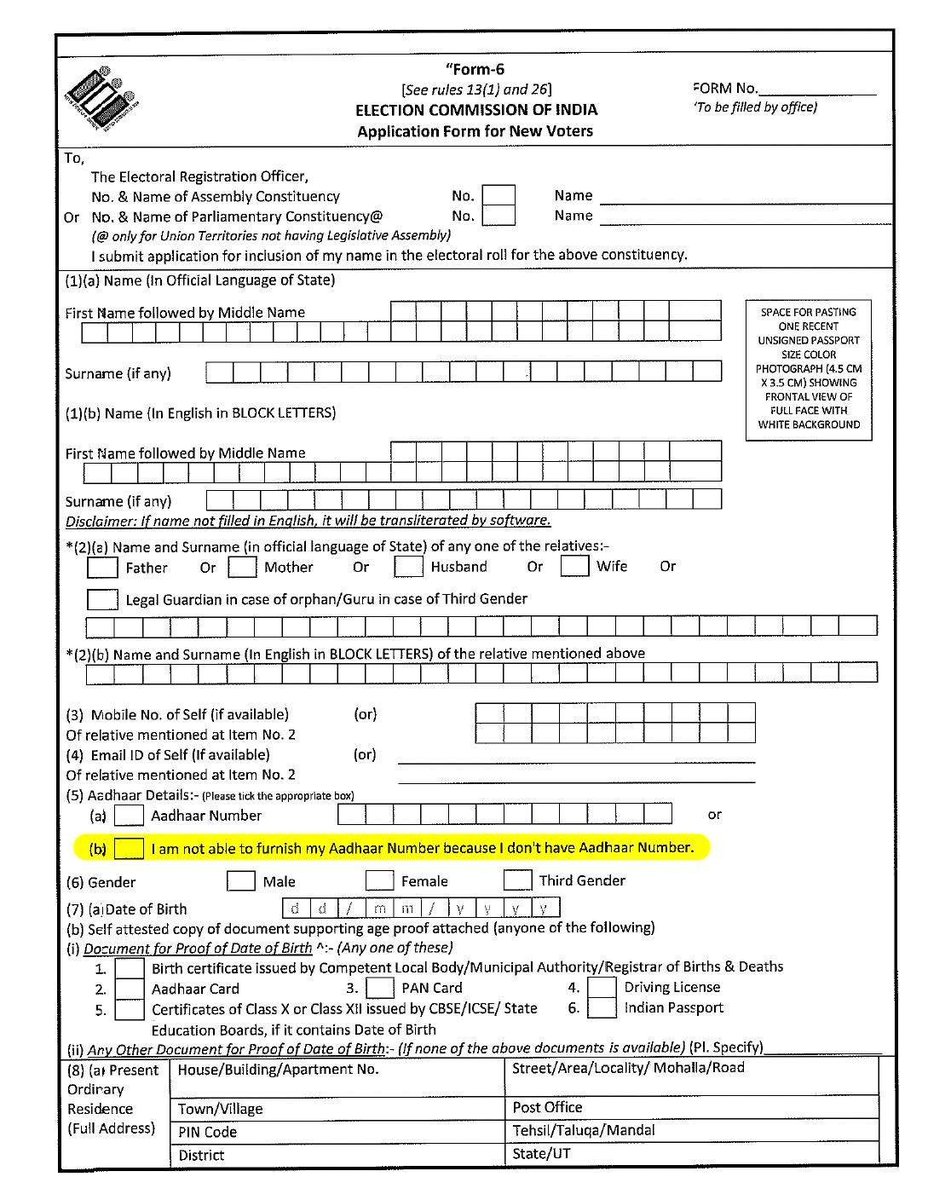BREAKING: A Booth Level Officer (‘BLO’) called an IFF Staffer today, directing them to give their Aadhaar Number or else they'll be deleted from the electoral roll. On digging deeper, the BLO provided the IFF Staffer with a letter that we're making public in this exclusive🧵1/7 

The letter we received from the BLO refers to a previous letter dated August 16, 2022 that asked BLOs to start house-to-house visits for ‘voluntary’ collection of Aadhaar details. But clearly, our Staffer's experience shows that this process is not voluntary at all.
2/7
2/7
This process is happening under the Election Laws (Amendment) Act, 2021. When this Act was passed in Parliament, @KirenRijiju had told @ndtv that the process will be voluntary. So, what happened?
The rules @MLJ_GoI introduced, made it all mandatory!
3/7
ndtv.com/india-news/ele…
The rules @MLJ_GoI introduced, made it all mandatory!
3/7
ndtv.com/india-news/ele…
In fact, @MLJ_GoI went one step further away from the 'voluntary' promise & recently amended Form 6, introducing Form 6B to the Registration of Electors Rules, 1960. These forms make it compulsory for those who have Aadhaar to provide their Aadhaar Numbers in order to vote. 4/7 



This is alarming as:
👉Having Aadhaar doesn't mean you want to link it & all its data with your Voter ID
👉All adult citizens have the right to vote & it can't be restricted due to a reluctance to give Aadhaar when there are other reliable ways to ID
5/7

👉Having Aadhaar doesn't mean you want to link it & all its data with your Voter ID
👉All adult citizens have the right to vote & it can't be restricted due to a reluctance to give Aadhaar when there are other reliable ways to ID
5/7
https://twitter.com/apar1984/status/1477881656966926340

*Aadhaar is neither proof of citizenship nor residence.*
So, it's worth asking: why are individuals, who are already on electoral rolls & have previously voted, being asked to prove their identity by giving Aadhaar? Does @ECISVEEP not trust the electoral rolls it prepared? 6/7
So, it's worth asking: why are individuals, who are already on electoral rolls & have previously voted, being asked to prove their identity by giving Aadhaar? Does @ECISVEEP not trust the electoral rolls it prepared? 6/7

We urge you to start a conversation on this today & spread the word to be more aware of your fundamental rights. The @ECISVEEP *must not* engage in this illegal, unnecessary exercise which may disenfranchise lakhs of eligible voters and affect their right to privacy.
7/7
7/7
• • •
Missing some Tweet in this thread? You can try to
force a refresh






